A Conversation with Bruce Duffie
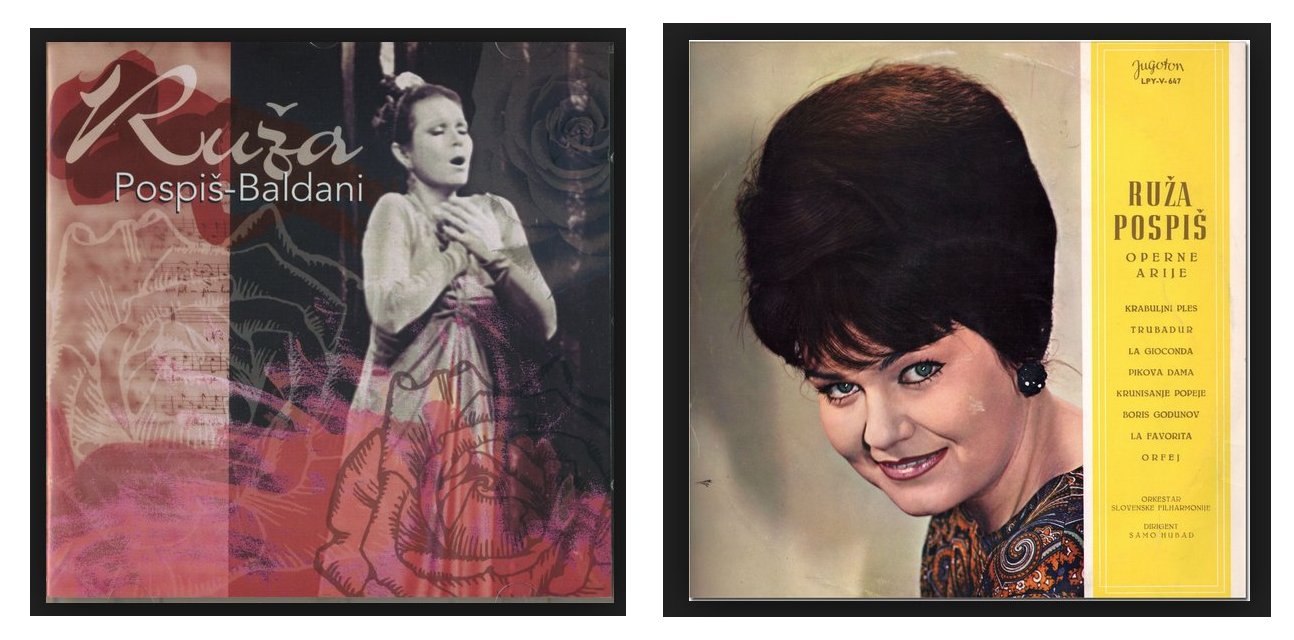

| Born: July 25, 1942 - Varaždinske
Toplice, Croatia (former Yugoslavia) The Croatian mezzo-soprano, Ruža Pospiš-Baldani, made her professional opera debut in 1961 at the Croatian National Theatre in Zagreb as Konchakovna in Alexander Borodin's Prince Igor. She remained active at that theatre and at the National Theatre in Belgrade throughout the 1960’s. In 1965 she made her debut at the Metropolitan Opera in New York City as Maddalena in Giuseppe Verdi's Rigoletto. From 1970-1978 she was committed to the Bavarian State Opera. Between 1973 and 1987 she was a frequent guest artist at the Wiener Staatsoper; drawing particular acclaim there as Brangäne in Richard Wagner's Tristan und Isolde. In 1976 she made her debut at the Paris Opera as Amneris in Verdi's Aida, and made her first appearance at the Opéra de Monte-Carlo in the title role of Georges Bizet's Carmen. She has since appeared as a guest artist at the Cologne Opera. the Edinburgh Festival, the Greek National Opera, the Hamburg State Opera, the Houston Grand Opera, the Hungarian State Opera House, La Scala, the Liceu, the Lyric Opera of Chicago, the National Opera of Sofia, the Salzburg Festival, the San Francisco Opera, the Savonlinna Opera Festival, the Teatro dell'Opera di Roma, the Teatro di San Carlo, and the Teatro Municipal in Rio de Janeiro among others. |
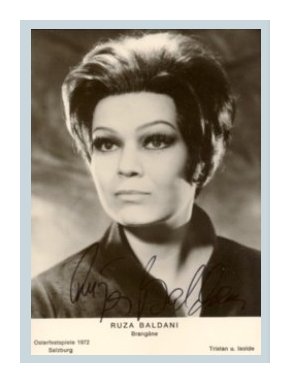 BD: Did you have a TV monitor?
BD: Did you have a TV monitor?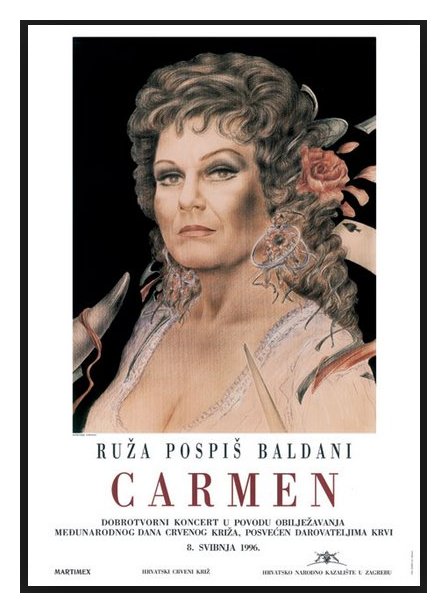 Baldani: That’s very difficult. Maybe I prefer
the stage, but also I like very much concerts and oratorio. Mahler
lieder is beautiful for voice. I sing Das Lied von der Erde and it’s very
nice, also the Second Symphony.
It’s really difficult to tell what is best. I like to do Carmen and during the anniversary year
in ’75, I sang forty performances in just that one season. Now I can’t
hear it anymore. You cannot play every day Carmen, because you must live with Carmen.
It is not like Fricka. You can sing Fricka, maybe, seven times in a
row because Fricka is not going so much through your heart as Carmen does
for me.
Baldani: That’s very difficult. Maybe I prefer
the stage, but also I like very much concerts and oratorio. Mahler
lieder is beautiful for voice. I sing Das Lied von der Erde and it’s very
nice, also the Second Symphony.
It’s really difficult to tell what is best. I like to do Carmen and during the anniversary year
in ’75, I sang forty performances in just that one season. Now I can’t
hear it anymore. You cannot play every day Carmen, because you must live with Carmen.
It is not like Fricka. You can sing Fricka, maybe, seven times in a
row because Fricka is not going so much through your heart as Carmen does
for me.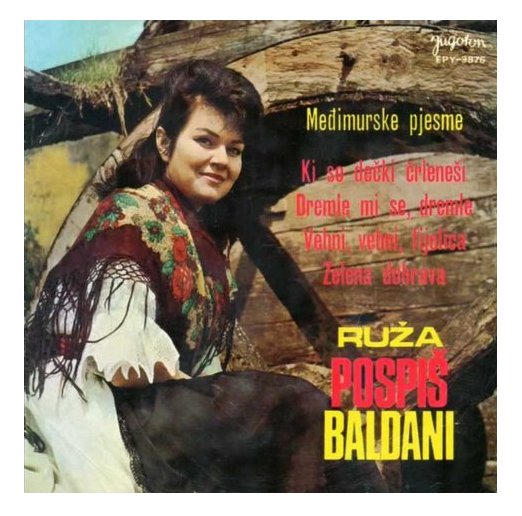 Baldani: I like working very much with Karajan because
he feels the singer on the stage and follows you. But there are others
I enjoy including Zubin Mehta, Sawallisch, and Carlos Kleiber is very good!
I like very much to work with Richter because he’s a very beautiful
conductor for Bach and this kind of music. We’ll do every year maybe
ten concerts. [Note: Richter has
some very complimentary things to say about Miss Baldani on her recording
of Bach arias which is shown at the bottom of this page.]
Baldani: I like working very much with Karajan because
he feels the singer on the stage and follows you. But there are others
I enjoy including Zubin Mehta, Sawallisch, and Carlos Kleiber is very good!
I like very much to work with Richter because he’s a very beautiful
conductor for Bach and this kind of music. We’ll do every year maybe
ten concerts. [Note: Richter has
some very complimentary things to say about Miss Baldani on her recording
of Bach arias which is shown at the bottom of this page.]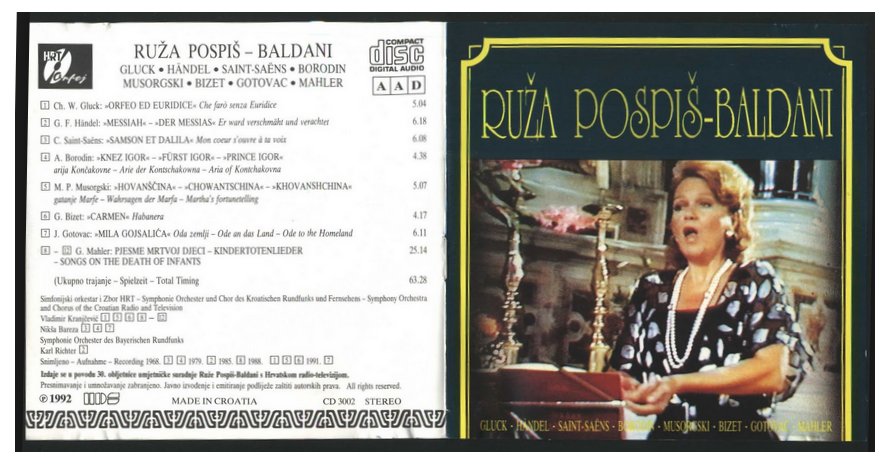
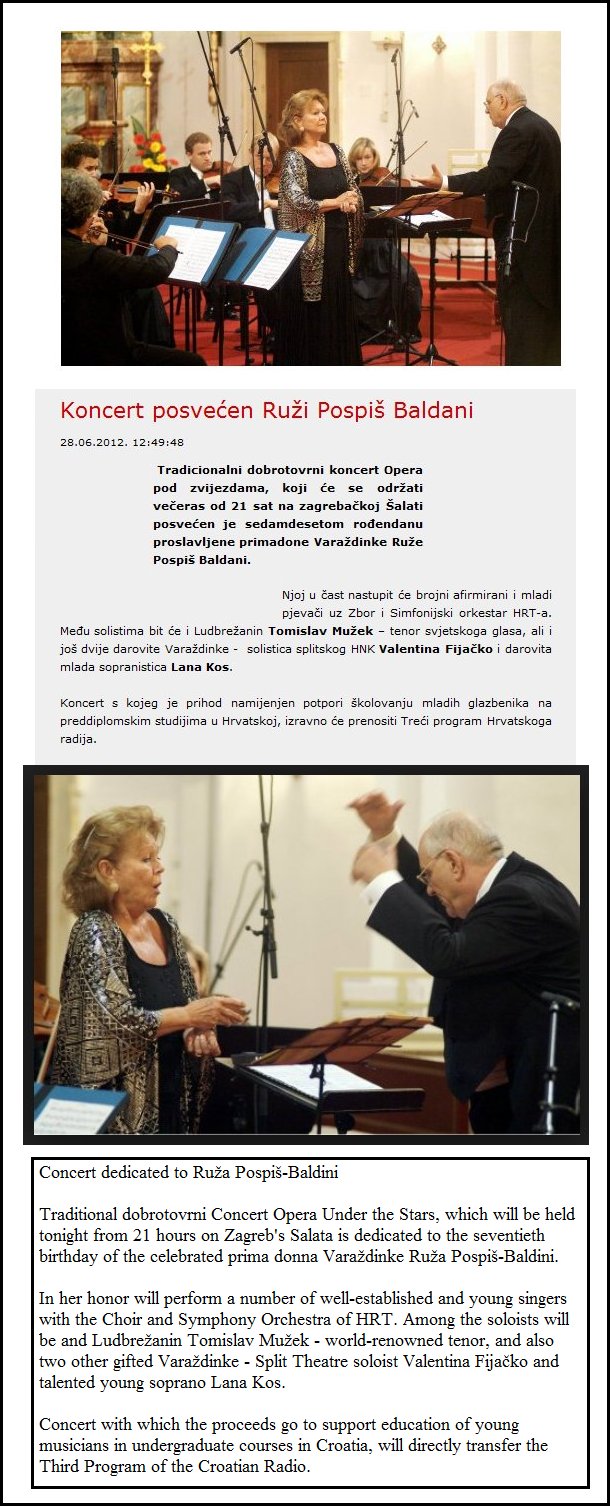 BD: Then do they bring in some international
stars?
BD: Then do they bring in some international
stars? BD: Would you enjoy singing it?
BD: Would you enjoy singing it?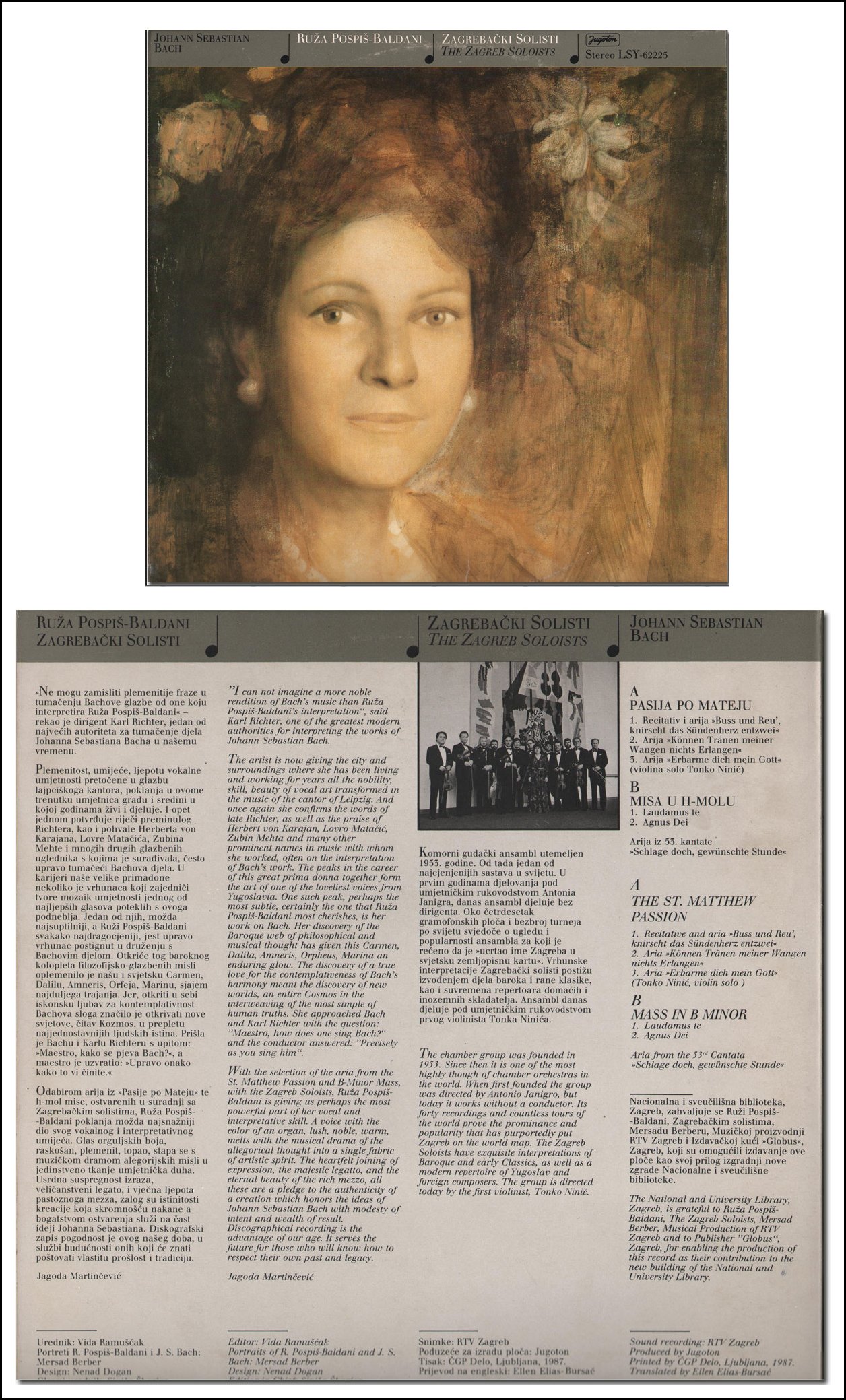
This conversation was recorded in Chicago on October 13, 1980.
Portions were broadcast on WNIB in 1997. About half was transcribed
and published in Wagner News in
December of 1980. This full transcription was made in 2015, and posted
on this website at that time.
To see a full list (with links) of interviews which have been transcribed and posted on this website, click here. To read my thoughts on editing these interviews for print, as well as a few other interesting observations, click here.
Award - winning broadcaster Bruce Duffie was with WNIB, Classical 97 in Chicago from 1975 until its final moment as a classical station in February of 2001. His interviews have also appeared in various magazines and journals since 1980, and he now continues his broadcast series on WNUR-FM, as well as on Contemporary Classical Internet Radio.
You are invited to visit his website for more information about his work, including selected transcripts of other interviews, plus a full list of his guests. He would also like to call your attention to the photos and information about his grandfather, who was a pioneer in the automotive field more than a century ago. You may also send him E-Mail with comments, questions and suggestions.